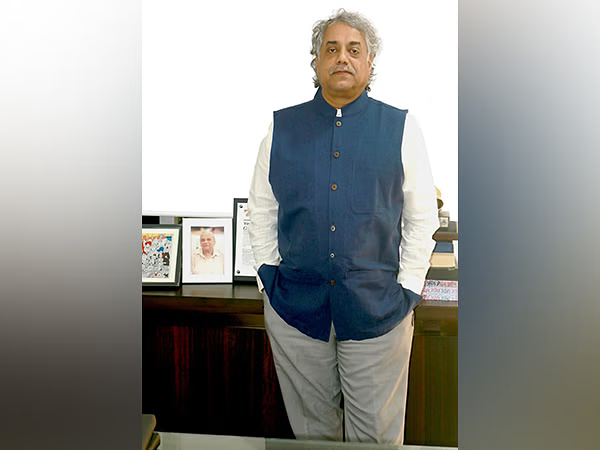News
Realty wishlist for Modi sarkar’s maiden Budget




Realty & More contacted a cross-section of industry stalwarts to find what their expectations are from the Union Budget 2014-15 and presents a snapshot of their viewpoints. We all will now await the coming Thursday to check to what extent the industry wishlist has come true


Mr. Reddy further said though housing finance companies (HFCs) exist to address this segment, their funding limits need to be augmented. These HFCs, he said should have a minimum net worth of Rs 300 crore for each of the last three years. Specialized HFCs who are funding low-cost housing will not meet these criteria and they should have an equal opportunity to access external commercial borrowings (ECBs).
Putting emphasis on the need for better lending policies, Mr. Reddy says that there is a need to redefine the priority sector lending (PSL) status. Today, only housing loans below Rs 25 lakh in metros qualify PSL. There should be a uniform definition of PSL as construction costs are more or less similar across the country, he said.
According to Mr. Reddy, the real estate sector is looking forward to the exemption of service tax for housing projects. The transaction taxes inclusive of the service tax, VAT, Registration and stamp duty, etc for a buyer has sharply risen over the past few years and therefore need to be brought down from 30-35 percent to about 15 percent.
He further said that the concept of NOCs is stopping the growth of the country, making houses costly by about 40 percent due to delay in getting project approval. He wanted that NOCs be completely eliminated to make online approvals implementable and successful.


The CREDAI chief also wanted steps to institutionalise the real estate sector through widening the funding options to achieve quicker financing for real estate projects and give investors an alternate source of investment.
For the benefit of the end-consumer and demand creation Mr. Reddy recommended that the Government should increase the threshold limit to Rs. 5 lakh for deduction on interest on housing loans under section 24(b) of the income tax from the current limit of Rs. 1.50 lakh.
Tata Housing Development Company views the upcoming Budget as an opportunity to address pertinent and long-prevailing issues in the real estate sector.


Banerjee said the excise duty reduction on cement and steel will lower project costs and expansion of the interest subsidy on loans will boost developers’ interest in this segment. Moreover, he said, tax measures such as increasing the limit of interest deduction on home loans will provide the necessary motivation to consumers to increase buying activity and revive demand in the value and affordable segment.
Referring to the Government’s mandate in terms of ‘Housing for All’, he said to tackle the massive housing requirement of urban India in an effective and speedy manner, the new housing policy should look to suggest some viable methods for making affordable housing possible in public-private partnership (PPP) model.
The Government also needs to look into providing additional incentives such as tax concessions and more income tax relief to buyers of affordable housing units, he said. Developers of affordable housing can also be incentivized in various ways, such as income tax deduction and reducing duties, according to Banerjee.


Reduced demand, litigation around land acquisition, delayed approvals, liquidity crunch and projects stuck mid-way have created troubles for investors and consumers, he said. Also, he said, the real estate sector is facing a demand slowdown in the last few years because of the high interest rate and low economic growth.
Dutta expected both fiscal and non-fiscal measures from the Finance Minister to give a push to the sector. He said if the Government introduced the uniform stamp duty rates and stamp duty, a credit will reduce costs for ultimate buyers and foster transparent deals.
Another important thing that he wanted was steps to be taken in this Budget to institutionalize the real estate sector to attain quicker and easier financing for projects and give developers an alternative source of financing.
Dutta also said single-window clearance would help large infrastructure projects. There could be increased outlay for urban infrastructure, he said.
RICS, a global body in setting standards in the housing sector believes that affordable housing projects, those catering to lower-income groups (LIG) and economically weaker sections (EWS) should have tax rebates. To increase the supply of affordable housing, a 100 percent tax rebate should be extended to all affordable housing projects approved under the affordable housing scheme.


The Government had last year announced a sop that gave an additional tax deduction of Rs 1 lakh to persons taking a home loan of up to Rs 25 lakh for the first purchase. But the provision was applicable till March 31, 2014. Mr Sandhir wanted this date to be extended. Additionally, he wanted the limit of Rs 1.5 lakh to be increased to Rs 3 lakh.
To bring more transparency in property transactions, the Government had also introduced the provision of tax deduction at source at a rate of 1 percent on transfer of immovable property priced Rs 50 lakh or more. RICS MD believed that the tax deduction should be extended by another year and TDS to be levied on properties priced at Rs 1 crore and above.
-



 News4 weeks ago
News4 weeks agoKW Delhi 6 Mall Onboards New Brands
-



 News4 weeks ago
News4 weeks agoManasum Senior Living Launches IKIGAI GOA, A Senior Living Community in North Goa, in collaboration with Prescon Homes
-



 News4 weeks ago
News4 weeks agoBridging India Divide: Top 5 Tier- 2 Cities to Focus On
-



 News4 weeks ago
News4 weeks agoCommercial Realty Gets Tech Savvy: Fast Construction, Enhanced Convenience
-



 News3 weeks ago
News3 weeks agoGodrej Properties Sells Rs 3k cr+ Homes of Godrej Zenith, Gurugram, within 3 days
-



 News4 weeks ago
News4 weeks agoMultipoint Connection – A Definite Boon
-



 News3 weeks ago
News3 weeks agoRBI’s Status Quo on Key Policy Rates to Help Maintain the Real Estate Growth Momentum, Say Industry Stalwarts
-



 News2 weeks ago
News2 weeks agoOlive Announces Dhruv Kalro as Co-Founder
























